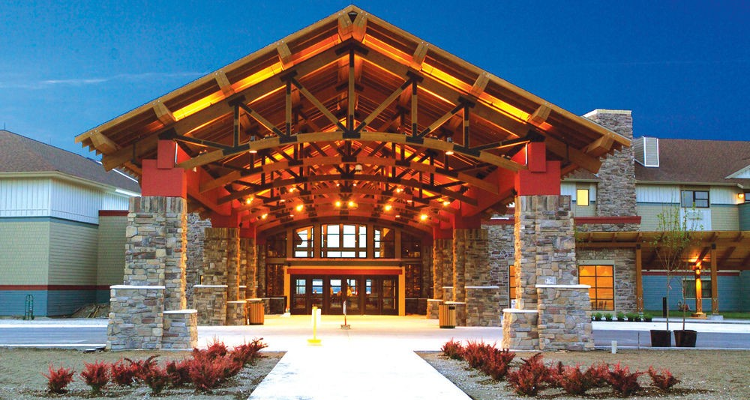In Michigan, the Sault Ste Marie Tribe of Chippewa Indians has reportedly declared that it intends to keep fighting for permission to build a pair of new casinos in the south of the state despite yesterday losing two federal land-into-trust decisions.
According to a report from The Detroit News newspaper, the federally-recognized tribe is headquartered in the state’s Upper Peninsula and had asked the United States Department of the Interior to take two parcels of land into trust. This would have subsequently cleared the way for the Sault Ste Marie Tribe of Chippewa Indians to begin negotiations about constructing and operating casinos on the plots.
However, the newspaper reported that one of these parcels is located in downtown Lansing, which is approximately 287 miles from the tribe’s northern base, while the second plot is a further 78 miles distant in the Detroit suburb of Romulus.
In making the decisions, James Carson, Associate Deputy Secretary for the United States Department of the Interior, reportedly wrote that tribe had “provided no evidence to support its argument”. He additionally decreed that the Sault Ste Marie Tribe of Chippewa Indians had been unsuccessful in “demonstrating that its acquisition of the parcels would effect an enhancement of tribal lands as necessary to trigger the mandatory land-into-trust provision”.
The state’s largest tribe with a membership of around 40,000, the Sault Ste Marie Tribe of Chippewa Indians operates Kewadin Casinos-branded gambling venues in the small Upper Peninsula communities of Sault Ste Marie, Christmas, Hessel, Manistique and St Ignace. It had also been responsible for opening the Greektown Casino Hotel in November of 2000 before offloading the struggling Detroit property to Jack Entertainment a little over twelve years later.
Despite Thursday’s rejections, Aaron Payment, Chairperson for the Sault Ste Marie Tribe of Chippewa Indians, reportedly told The Detroit News that the tribe has “no intention of giving up” because it believes that the law is on its side. He explained that at least three prior government actions including a 2013 decision from the United States Court of Appeals for the Sixth Circuit and a ruling by the United States Supreme Court a year later had “cleared the way for the tribe to file the applications”.
“We are deeply disappointed in the United States Department of the Interior’s decision to deny our mandatory trust land petitions for Lansing and Romulus largely because it is based on a flawed legal analysis and because our Land Claims Settlement Act approved by the Congress of the United States in 1997 clearly requires that the applications be approved,” Payment told the newspaper.
The Detroit News reported that the the Sault Ste Marie Tribe of Chippewa Indians had filed its land-into-trust application for the 2.7-acre parcel in central Lansing in 2014 before later adding a 71-acre Romulus plot only four miles from Detroit Metropolitan Wayne County Airport to the request.
“Our tribe is within federal law and our legal rights to pursue these opportunities to create thousands of new jobs and generate millions of dollars in new revenues that will enhance our tribal land base and benefit our members, the people of Lansing, public school students in Lansing, the people of Huron Township and the entire state,” Payment told the newspaper.


